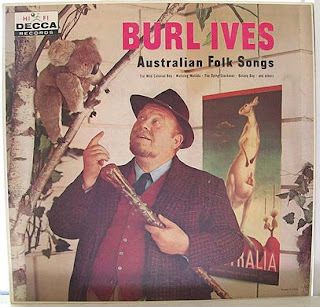Words: Keighley Goodchild
Tune: Traditional (The Dreadnought)
I sing of a capting not unknown to fame;
A naval commander, Bill Jinks was his name,
Who sailed where the Murray’s clear waters do flow,
Did this freshwater shellback, with his Yeo heave a yeo.
(Derry down, down, down derry down)
To the Port of Wahgunyah his wessel was bound
When night comes upon him and darkness around;
Not a star on the waters its clear light did throw;
But the wessel sped onward with a Yeo heave a yeo.
“Oh! Capting, oh! Capting, let’s make for the shore,
For the winds they do rage and the winds they do roar!”
“Nay, nay,” said the capting, “though the fierce winds may blow
I will stick to my vessel with a Yeo heave a yeo.”
“Oh! Capting, oh! Capting, the waves sweep the deck,
Oh Capting, oh! Capting, we’ll soon be a wreck —
To the river’s deep bosom each seaman will go!”
But the capting laughed lightly, with his Yeo heave a yeo.
“Farewell to the maiding — the girl I adore;
Farewell to my friends — I shall see them no more!”
The crew shrieked in terror, the capting he swore —
They had stuck on a sandbank, so the men walked ashore.
From Ron Edward's Big Book of Australian Folk Songs, with the following note:
A NAUTICAL YARN was originally published in 1883 in a volume of poems "Who Are You" by Keighley Goodchild. Although it comes under Goodchild's name Ian Mudie in his book, "Riverboats" suggests that "-it is so different from the rest of Goodchild's work that it seems quite likely that he heard in on the riverboats or in the pubs of Echuca - and wrote it down as his own".
Goodchild gave the tune of the song as "The Dreadnought" but when it first appeared in print with the music attached, in the "Burl Ives Folio of Australian Songs" 1953, the tune used was "Villikins and his Dinah."
Edwards notes that this error has been carried on into other collections.
I've gone with the original.


Ripper!!!
ReplyDeleteThanks for your fun site, in particular this song.
ReplyDeleteBut what's with the odd spelling/pronounciation?
Capting? Maiding? Wessel?
Is it some affectation? An imitation of some kind of accent? Or a transcription error?
I grew up with the Burl Ives rendition which is obviously a different tune, and he just uses the normal words.
I also like the standard "yo heave yo", but as a nonsense word, I suppose it might as well be "yeo". (I see via google that the most common phrase is different again - "yo heave ho")
It is indeed meant to be an accent.
ReplyDeleteThis song hasn't been easy to track down. I had wondered what the name of the tune was so I'll do some more chasing. I had a version of this on record, probably by Lionel Long. (I didn't know Burl Ives had recorded it.)
ReplyDeleteAnyway thanks for the information. It's appreciated.
Dozy, here is the Burl Ives version:
ReplyDeletehttp://www.youtube.com/watch?v=LMm7292Yyvw
This was a song that I learned in Primary school For some crazy reason it entered my head today :) CAPTING is not what I remembered... BUT I am amazed by the lyrics I never forgot :)
ReplyDelete"Capting" and "maiding" are known in the language biz as "hypercorrections." The sailor knows it's lower-class to drop the g at the end of a gerund, so he overcompensates by adding one to any word that ends with "in" or "en." You see this in Treasure Island, too.
ReplyDelete